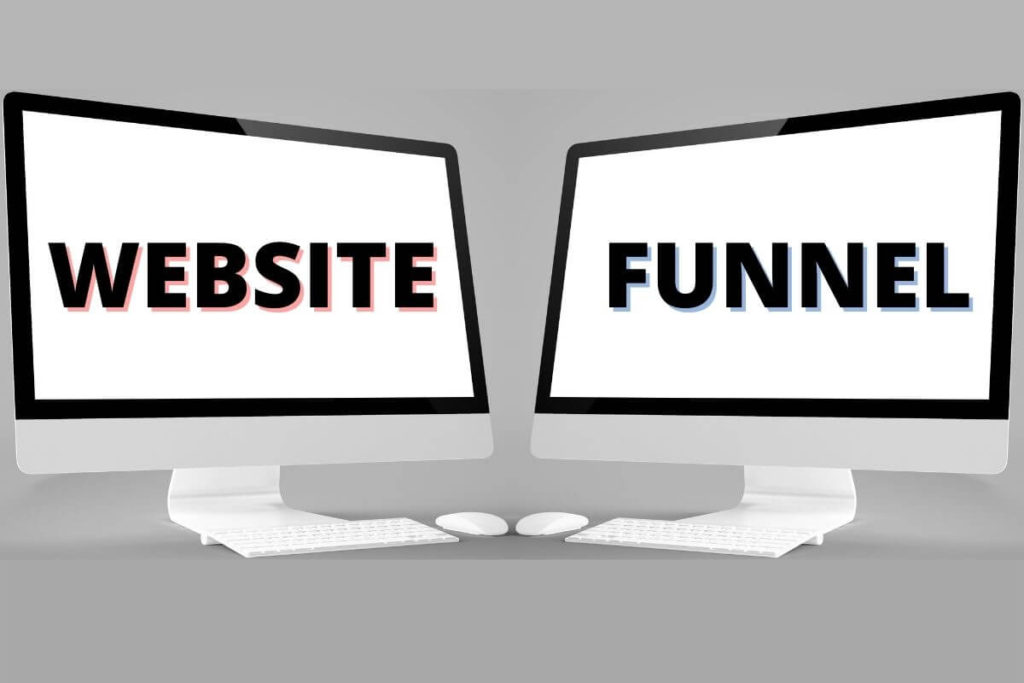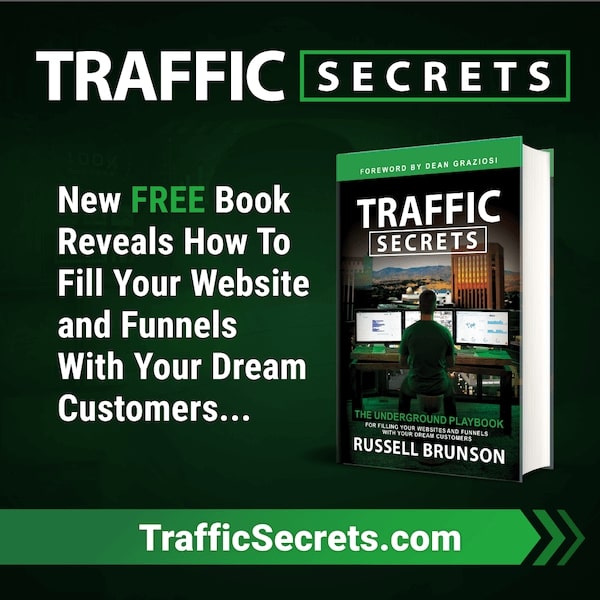What is the difference between a Website and Funnel?
If one were to describe sales funnels in 1 line, it would be a visual representation of the buying process that a customer goes through when buying a product.
With the continually rising volume of new businesses and a surge of new websites and social media, the struggle to stay above competing businesses is ferociously intimidating and expensive. A marketing funnel can sometimes be the answer for those struggling to reduce the bounce rate, increase conversions, and turn website visitors into loyal customers.
But what is so special about funnels, and can they be used as a substitute for websites? What is the Difference Between a Website and Funnel?
We will discuss that in detail in this article. But First, let us explain the two!
What is a Sales Funnel?

As described above - A funnel is a graphical representation of the customers sales journey which starts when the first contact is made and ends when the purchase is completed.
A funnel is the visual idea of customers' journey, from the very first time they've discovered your business, all the way to becoming a dedicated, loyal customer. The concept of the funnel is that once a potential customer has been introduced to the sales funnel, he is lured, through a coordinated marketing strategy, to different stages of marketing or remarketing, with the intention to drive a positive outcome or sale towards the end.
What makes funnels unique is that funnels can 'catch' customers and also have the ability to re-market a product to them. Even if the customer loses interest at first, there is still a chance that you can convince them to revert to your business at a later point in time.
What Do the Funnels Do?
The primary purpose of a sales funnel is to drive customers to make a sale or purchase decision. It helps your prospective customers or leads to find your business and convince them in buying your products and services.
This entire process involves the below steps that guide visitors into making a purchase decision. The steps are a combination of marketing tools, such as email marketing funnels and landing pages, that do the sales work.
The 7 Phases of a Sales Funnel

Awareness Phase
Making the customer aware of the product or service

Interest Phase
The customer actively takes an interest in knowing more about the product and service
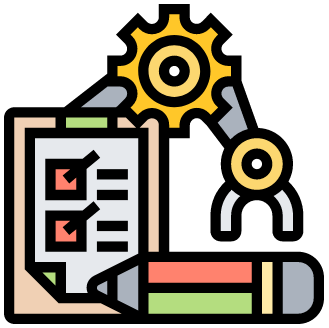
Evaluation Phase
The customer evaluates the product in comparison to other competitors and also against his own problem statement i.e. if the product solves his problem
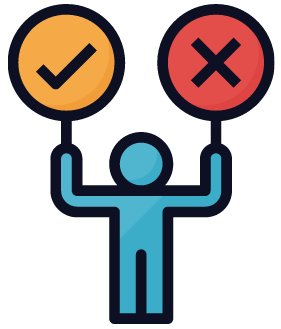
Decision Phase
The customer now makes the decision and negotiation begins

Purchase Phase
The customer initiates the purchase.
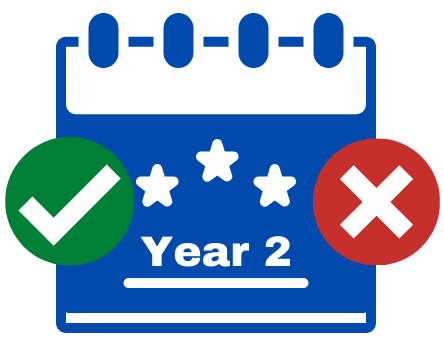
Revaluation Phase
This applies to B2B sales where contracts or memberships need to be renewed on a periodical basis. As the renewal date draws close, the customer re-evaluates if they will or will not renew their contract. This goes back to evaluation phase
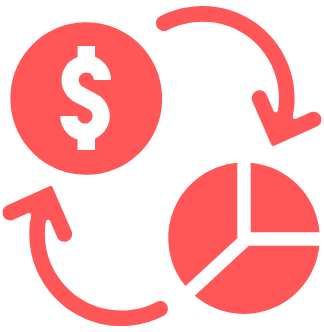
Repurchase Phase
The customer makes the decision to repurchase the product or service or renew their membership
See below one of the examples of sales funnels. This is from the website Clickfunnels, promoting their book Traffic Secrets.
Having covered Funnels - let's take a closer look at how the website and the sales funnel differ and why do you particularly need a sales funnel.
What is a Website?
A Website is very much an online portfolio for your business. It allows you to make an online address, analogical to a real address that will enable you to be found online.
It is typically a collection of interconnected web pages maintained within a single web domain. A website consists of web pages, videos, images, and various digital assets that are usually kept on servers and can be accessed through the Internet.

The pages of the website can be accessed from a common root URL defined as the Homepage. The pages common to most websites are Homepage, Contact page, About us page, shop/ products or service page, and Blog page, among others. Apart from Pages, there are Posts which are used to publish blog content or updates on a periodical basis. Posts is where you connect most with your audience and this is where most of the content based marketing happens. Apart from Posts you can also have banners, widgets, Ad fields etc. where you can publish 1-2 liner ads which can act as funnels to divert traffic to your sales page.
What Do the Websites Do?
A website helps ensure you are visible on search engines such as Google and Bing. It also helps you connect with customers and hence increase your credibility as the customers find you when they search your business on the internet. For online marketing - websites act as information hubs that allow you to provide in-depth information on the services, products, and transactions of your business.
Are Websites also Funnels ?
Well, not exactly. While an efficient web design is always customer-centric and laid for conversion, funnels offer greater precision in terms of their objectives and target audience.
For example, this website on which you are reading this blog is designed to appeal to mass crowds of people yearning to learn more about funnels. This post or website is not structured to showcase a particular product or service. A funnel, on the other hand, focuses on a specific customer type with a particular focus on conversions.
Moreover, while you can surf a website in a variety of ways, a funnel offers a specific path for users to follow. Thus, leading the prospective customers through every stage of the sales funnels journey from generating qualified leads to coercing, then conversion and, ultimately loyalty and advocacy.
How Do the Funnels Work?
To make it more comprehensible for the beginners, we have divided the working process of Sales Funnel into four stages, as described below.
Stage 1 – Finding Qualified Leads
The first step in a marketing funnel is to find qualified leads i.e. prospective customers that are most likely to convert. This is usually done by offering a free product or service to your funnel visitors. This could be in the form of a free e-book download or a free service trial. The end goal is to collect information from potential customers, as they fill out their details to claim the freebie on offer.
Stage 2 – Marketing and Shaping Minds
The customer, having opted-in to your email marketing funnel, has now made a micro-commitment with your business. Stage 2 begins here! Make your move and give them an offer they can't refuse. Conversely, if the customer is not yet willing to invest in your top product, you can lead them to a 'Down sell,' which gives them a smaller yet attractive deal, such as a cheaper 'beginner' deal or service.
Stage 3 – Conversion
This stage is where the prospective customer makes the purchase, and this means that prospective customer has converted into your real customer.
Step 4 – Building Loyalty
The final stage is to keep in contact and follow up with recent buyers. The goal is to nurture and engage your customer so that they remain with you for the lifespan of your business.

Can a Funnel replace a Website?
This is one of the most frequently asked questions - What is more effective - Funnel or Website?
Having an amazingly high-ranking website will definitely make your brand prominent and raise awareness about it. However, the website will not guarantee sales on its own! This is mainly due to the reason that websites host a tally of opportunities for distractions. People click through a lot of pages, read various articles and then leave after spending a substantial amount of time– but without a lead or a sale.
Marketing funnels, on the other hand, take you directly to a landing page and offer both a lead and a sale!
So, Does that mean there is no need for a Website?
No! - Websites are a vital part of marketing strategy – without one, your customers would most likely be unaware of your existence. You need a website to connect with your customers and to build the credibility and reliability of your business.
The key to a successful business is to have both Websites as well as Funnels. A website when used with a Marketing Funnel such as ClickFunnels can provide you with the best of both worlds, each with its own value and purpose. The more channels you have, to bring in leads and increase brand awareness, the higher would be your sales and profit.
How does a Website and Funnel work together?
Sites and funnels pair perfectly in today's digital landscape. In fact, many of today's successful websites contain multiple funnels. For instance, you can use your blog or page to drive traffic to different funnels that are specific to the topics of your user's interest. At the end, it all narrows down to finding the best approach so that your website and funnel complement each other. When effectively managed, both website and funnels can boost your business as well as brand within the digital marketplace.
I’m inspired. How do I get started with funnels?
Regardless of the fact whether you are a beginner or a pro, I highly recommend using ClickFunnels to get going with your first funnel.
Why Choose Click Funnels?
There are quite a lot of funnel building tools available in the market nowadays, but of all Click Funnels has the easiest and the most versatile platform to work with. Click Funnels was the first in this field and is now a reputable veteran that has been here longer than anyone else. And they offer features that entrepreneurs need to build powerful funnels. Besides, they give frequent updates to improve and debug their platform more than any of their competitors. Click here for our detailed review of Clickfunnels
Another reason we are a big fan of Click Funnels is the training materials and the community that comes with it. The platform takes you through everything that you need to know to build strong funnels. You can also ask questions from their massive Facebook group community to get help with anything you need. There is so much that you can learn about Click Funnels sales and marketing in general, and that makes it worth $100 per month, even when you're not using the tool to build a thing.
Last but not least, Click Funnels has a lot of evidence to back up its value. Hundreds of people have built funnels worth millions of dollars using this tool. Case studies are out there for everybody to see.

